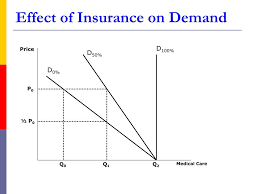The Impact of Health Insurance on Healthcare Demand
Health insurance plays a pivotal role in shaping healthcare demand. By providing financial protection for medical expenses, health insurance can influence individuals’ decisions regarding healthcare utilization and access. This article explores the key ways in which health insurance impacts healthcare demand:
Increased Access to Healthcare
- Affordability: Health insurance makes healthcare more affordable for many individuals, enabling them to seek medical attention when needed.
- Reduced Financial Barriers: Insurance coverage eliminates or reduces out-of-pocket costs, such as deductibles, copays, and coinsurance, making healthcare more accessible.
Changes in Healthcare Utilization
- Preventive Care: Health insurance often encourages preventive care by covering routine checkups and screenings. This can lead to earlier detection of health problems and potentially lower healthcare costs in the long run.
- Increased Utilization: Individuals with health insurance may be more likely to seek medical care for minor illnesses or injuries, which can lead to increased demand for healthcare services.
- Overutilization: In some cases, health insurance can contribute to overutilization of healthcare services, leading to higher costs.
Impact on Healthcare Providers
- Increased Revenue: Health insurance providers often reimburse healthcare providers for services rendered, increasing their revenue.
- Payment Models: The type of health insurance plan (e.g., fee-for-service, managed care) can influence how healthcare providers are compensated, affecting their incentives and practices.
Factors Affecting the Impact of Health Insurance
- Insurance Plan Design: The type of health insurance plan (e.g., HMO, PPO, HDHP) can significantly impact healthcare demand.
- Cost-Sharing Provisions: Deductibles, copays, and coinsurance can influence individuals’ decisions about seeking care.
- Out-of-Pocket Costs: Even with health insurance, out-of-pocket costs can still be a barrier to healthcare access for some individuals.
- Availability of Healthcare Providers: The availability of healthcare providers within a health insurance network can influence where individuals seek care.
In conclusion, health insurance plays a complex role in shaping healthcare demand. While it can increase access to care and encourage preventive behaviors, it can also contribute to overutilization and higher healthcare costs. Understanding the factors that influence the impact of health insurance is crucial for policymakers and healthcare providers to develop effective strategies for improving healthcare access and affordability.





